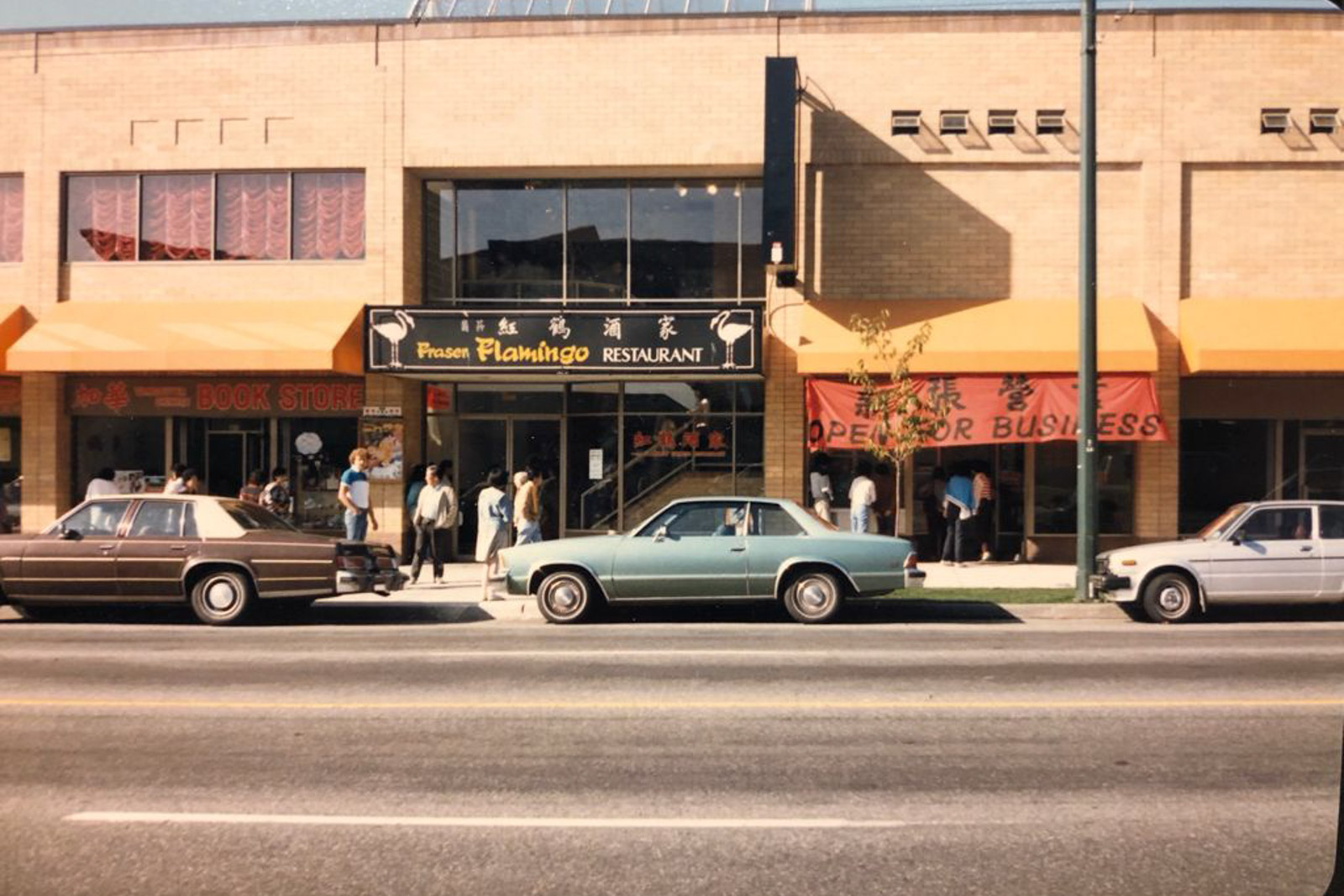Jonathan Lee’s favourite dishes to order at his family’s Flamingo Chinese Restaurant are the stir-fried beef with flat rice noodles and the lemon chicken. The flavours, heightened by wok hei, transport him to his childhood, when he and his siblings and cousins spent every weekend at the family’s restaurant, playing while his parents worked. “We were those kids running around crazily, going up and down in the elevator, running down the stairs. That was our lives when we were young,” he recalls.
Now the operator of the Lees’ most recent restaurant venture, Little Bird, Jonathan represents the third generation of a narrative that spans two continents and two very different Vancouvers.
The story begins with Jonathan’s grandfather Yuk Sing Lee who, 14 years old and an orphan, was sent from China to live with his aunt in the Philippines. His father had died in Regina, Saskatchewan, after going to seek his fortune in Canada, where he ran a grocery and diner for hungry late-night truckers. Yuk Sing made a life in the Philippines, married and had a son, Joseph, and grew adept at running grocery stores and hotels. In 1969, he and his family set off for Vancouver with a dream of opening their own business one day.
Joseph, full of ambitions in his newly adopted home, studied hotel and restaurant management at BCIT and then worked for a few years at A&W and Eaton’s. As the only son of Yuk Sing, he felt the weight of his familial responsibility. His maternal grandparents would constantly remind him: “Joseph, you are the son of the Lees. You must support your dad’s needs.”
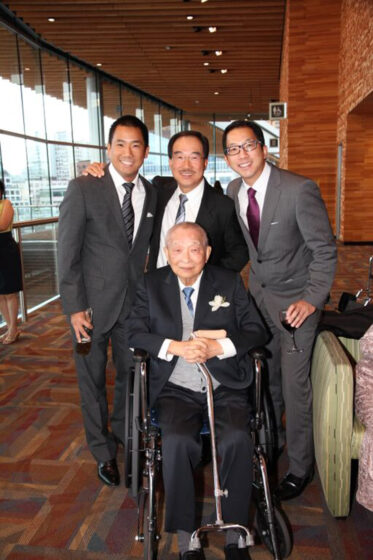
Jerome, Joseph, Jonathan, and Yuk Sing Lee.
So, when his father came to him with an idea to open a restaurant, Joseph didn’t hesitate to invest his $12,000 savings. “My father said to give him all my money. I gave him my bankbook, and we went into partnership for the restaurant.”
Together they took over a pre-existing establishment—Flamingo Steak & Pizza House on Cambie at West 59th Avenue—opening on the auspicious eighth day of the eighth month of 1974. They kept the original menu until customers clamoured for Chinese cooking. Ever resourceful, Joseph had a cook ink Chinese characters onto the old Flamingo menus. A year into the business, they added dim sum, a groundbreaking move. “We were the first authentic restaurant that served dim sum away from Chinatown,” Joseph maintains.
Today, it’s hard to comprehend the paucity of Chinese restaurants at the time. “When they first opened, there weren’t many Chinese restaurants, period. Outside of Chinatown, there were two or three,” Jonathan says.
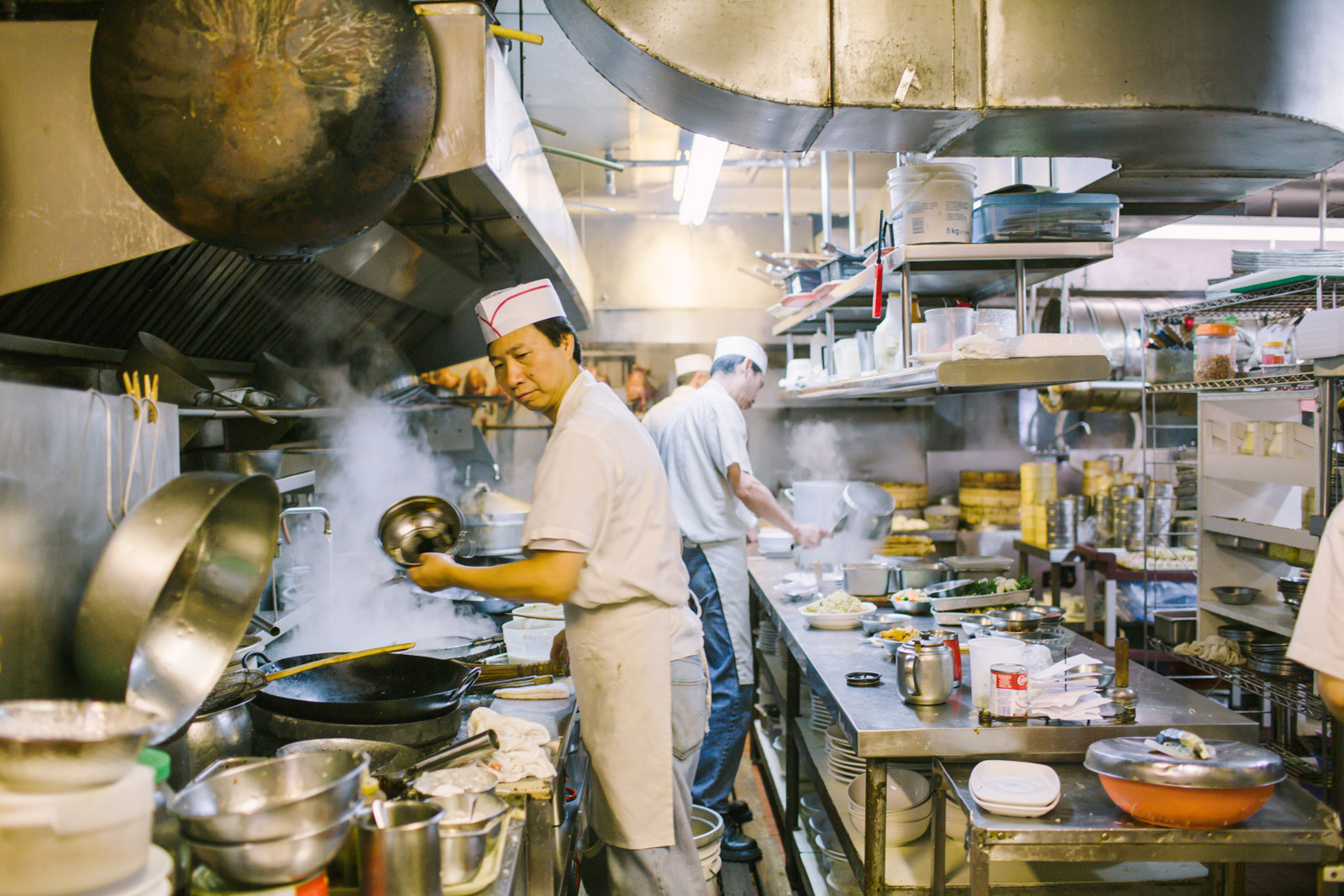
The kitchen at the original Flamingo restaurant on Cambie Street.
Joseph recalls grudgingly receiving “second-grade vegetables” from Chinatown grocers who were certain the Flamingo would soon go out of business. To this day, he continues to source from companies such as Koo Produce that were willing to supply them.
Even finding skilled cooks was a challenge, with Joseph having to convince government officials to let him bring over chefs from Hong Kong. “I’m not trying to serve chop suey. I’m trying to serve authentic Chinese food,” he pleaded with them.
Fortunately, the skeptics were wrong. The father and son expanded the Cambie Street restaurant and, in 1984, opened a second location on Fraser Street at East 18th Avenue. Both restaurants became deeply beloved by diners, such as former B.C. premier Mike Harcourt’s father, who came to commemorate weddings, graduations, and the losses of loved ones, and to feast on the Flamingo’s famous dim sum.
The Flamingo grew up with the city, weathering the heady expansion after Expo 86 and the rise of Richmond as a Chinese food destination. Now, with its Cambie and Fraser Street locations closed and the current Flamingo located on Southeast Marine Drive (opened in 2017), the family continues to reinvent itself even as it stays true to its history.
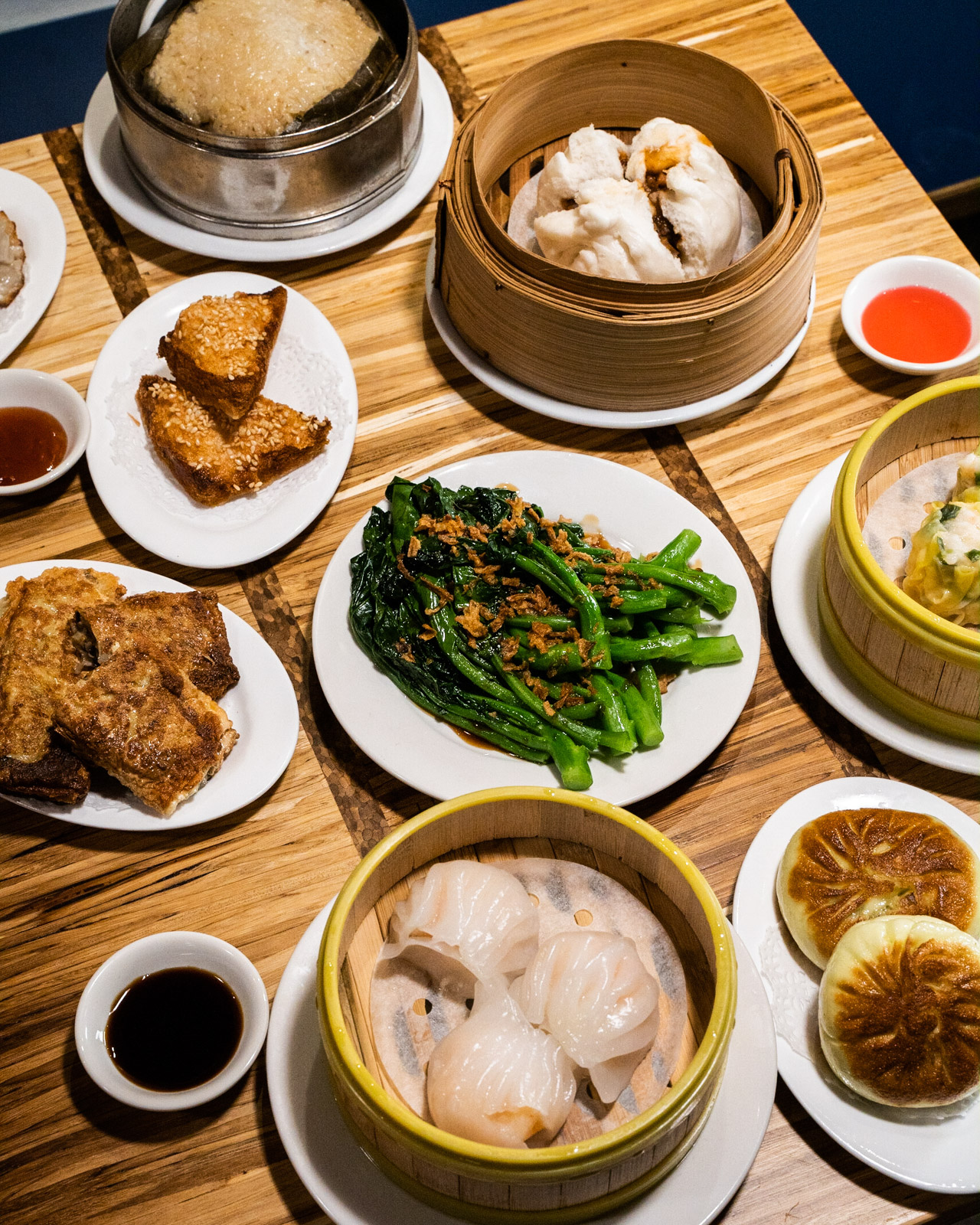
Dim sum at Little Bird Dim Sum and Craft Beer.
Although Yuk Sing passed away in 2015 after retiring at age 85, his spirit remains present. Joseph feels protected by his father’s inspirational words: “Never be scared. Don’t worry. I’m behind you.”
Jonathan fondly recalls daily “tea time” with his grandfather at the Flamingo, when Yuk Sing would enjoy tea in a Coca Cola tumbler and regale him with stories of his past. “It helped me appreciate what they did and the hard work that it took to get them where they are,” he says.
So, after years of studying and working as a business consultant in the U.S., Jonathan decided to return home to the family business. Little Bird Dim Sum and Craft Beer, which opened in 2019, is the product of this homecoming. Co-owned with his parents and two siblings, Natasha and Jerome, the restaurant speaks to a new generation. “I’m trying to bring together two worlds in a way—the East being the food, specifically, traditional Cantonese dim sum; the West is the service and the experience that you get at Western restaurants, along with craft beer and wine,” Jonathan explains.
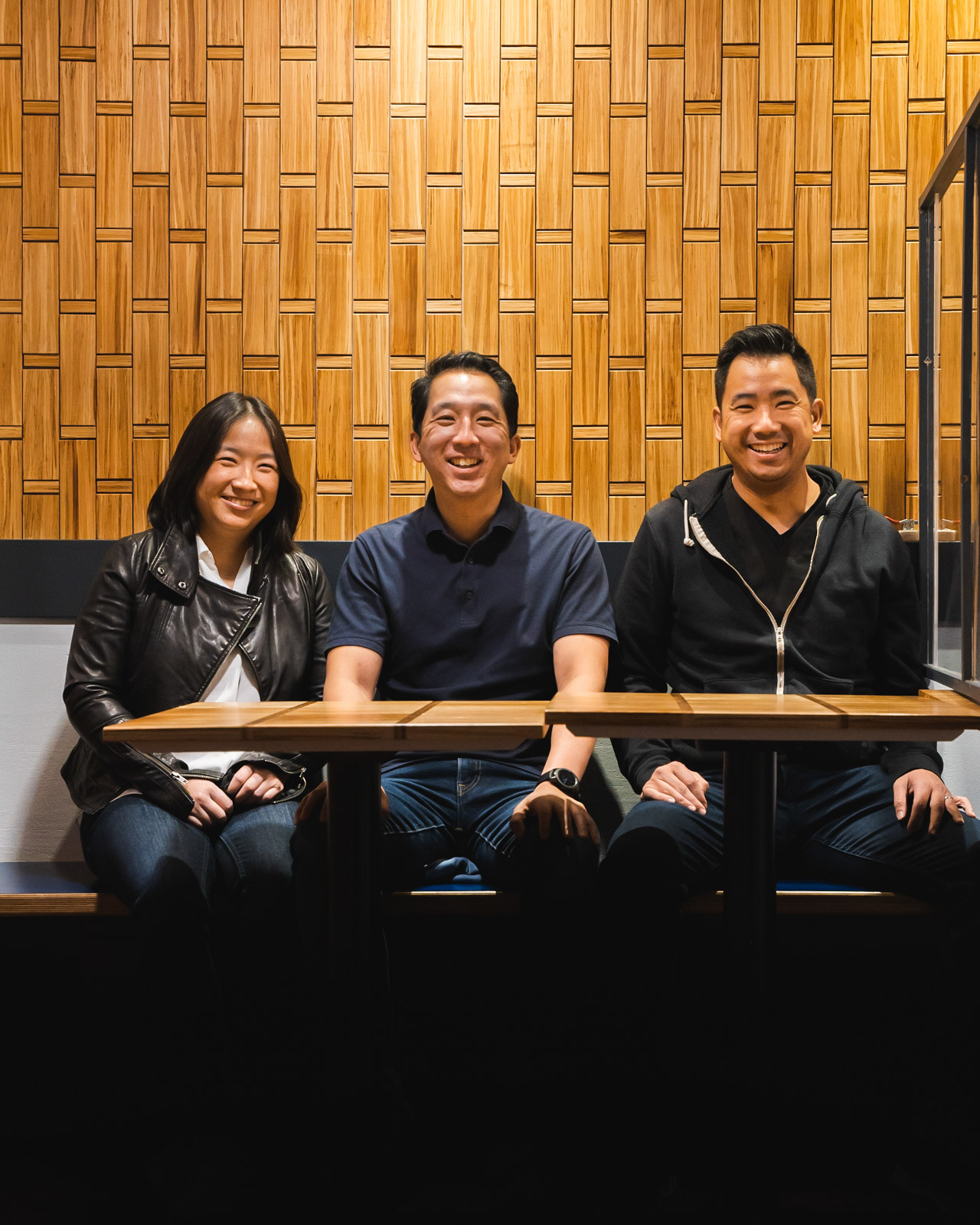
The new generation: Natasha, Jonathan, and Jerome.
Along with a clean modern aesthetic and seating for more intimate dining, Jonathan has expanded the restaurant’s dim sum to make the traditional fare more responsive to a 21st century Vancouver palate. His brother’s wife, who eats a mostly plant-based diet, yearned for a vegetarian siu mai. At the central production facility that services both restaurants, dim sum chef Liang Jiang was at first flummoxed by the idea. Like many staff, Jiang has worked loyally at the Flamingo for more than 30 years, and was accustomed to time-honoured recipes. However, with some persuading from Jonathan, the chef eventually experimented, settling on a siu mai that features Beyond Meat instead of the usual ground pork. Similarly, jian dui (sesame balls) were made vegan by substituting sesame paste and matcha for the usual red bean paste with lard.
Because Little Bird is primarily a night-time establishment, except for weekend brunch, the dim sum items lend themselves to drink pairings. Joseph remembers coming home after a long day at the Flamingo to eat steamed dishes for dinner with a glass of wine, whisky, or a beer. Relaxing over bites and sips, he would imagine a restaurant that Jonathan has now made concrete. “He is the young generation,” Joseph explains fondly. “I always wanted to have dim sum at night. The way they made Little Bird makes me so happy.”
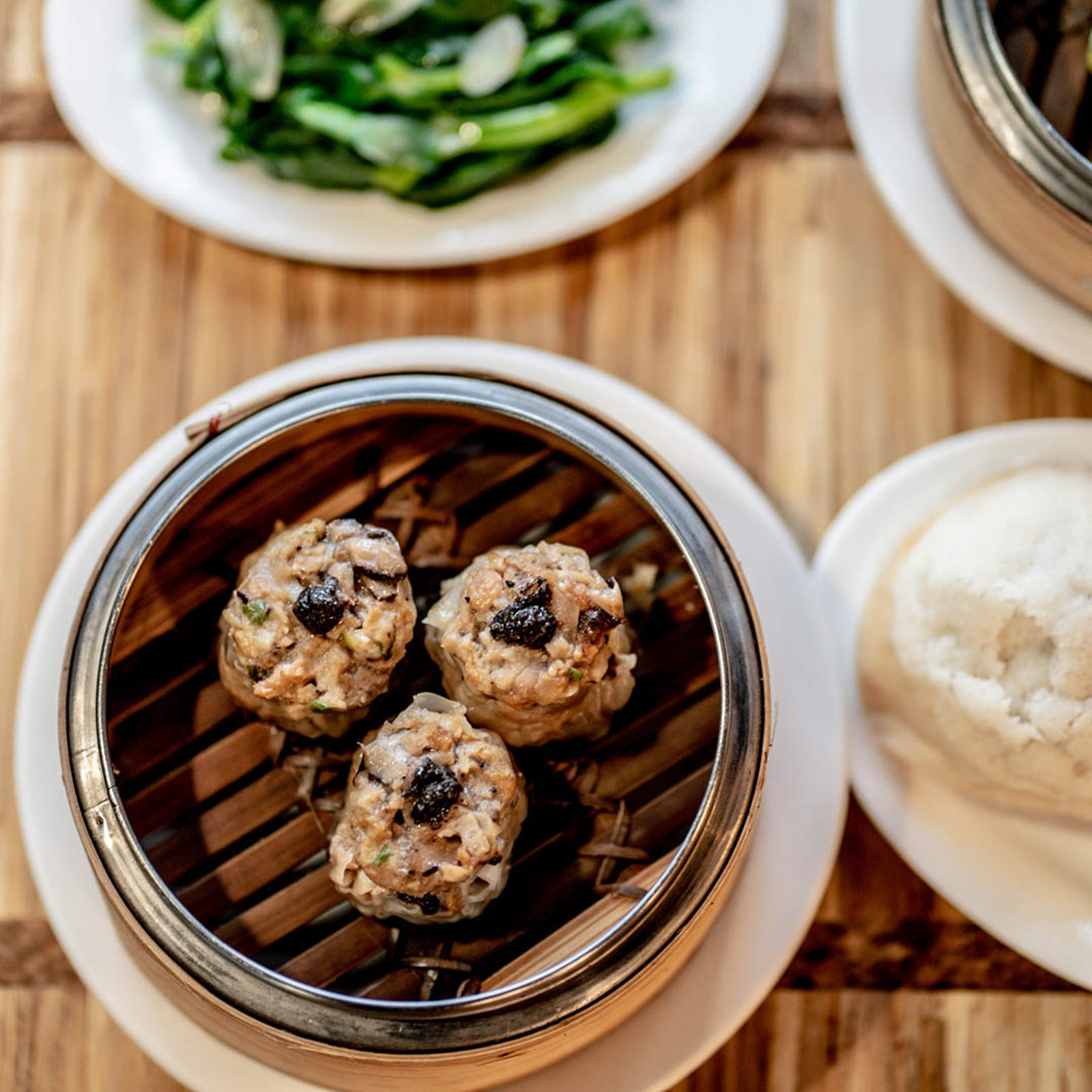
Vegetarian siu mai at Little Bird.
Joseph has much to be proud of when it comes to his family’s impact on the Vancouver restaurant scene, but he remains disarmingly modest. “I never thought about how to be famous. I never thought about how the restaurant could last so long,” he says. This humble commitment to hard work has been instilled in Jonathan, who is now introducing his own two sons to the Flamingo’s unswerving values, one dumpling at a time.
“What I really want to do is keep to the traditional. I always use that word, tradition. I don’t want to get away from it,” he emphasizes. If the success of Little Bird is any indication, the traditions that Yuk Sing established are still very much relevant today.
Read more local Food and Drink stories.

